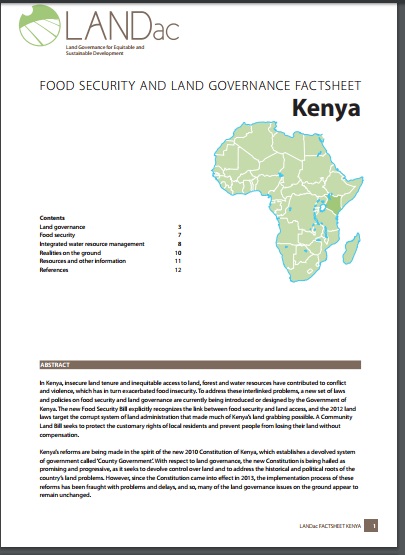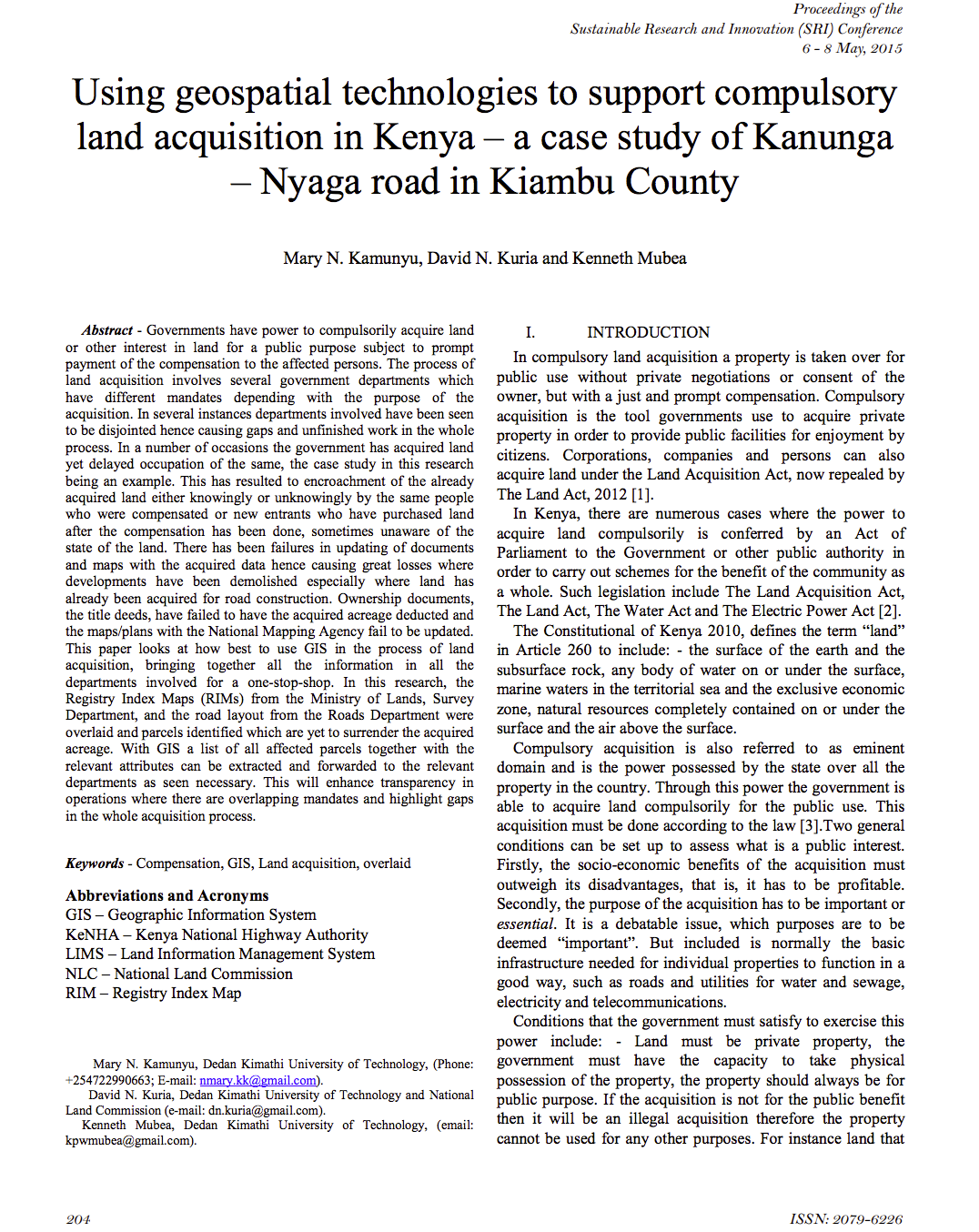Focal point
Location
Land Development and Governance Institute
MISSION: To contribute to improved livelihoods through offering a bridge between communities, stakeholders and policy makers in the promotion of equitable access and sustainable management of land and natural resources.
VISION: To become a centre of excellence in promoting the application of appropriate land policies, laws and management practices by empowering society through innovative and knowledge based advocacy and capacity building in Kenya and the region. LDGI values of Integrity, Trust and Professionalism influence the way we work every day and everywhere.
Members:
Resources
Displaying 36 - 40 of 73Food Security and Land Governance Factsheet Kenya
In Kenya, insecure land tenure and inequitable access to land, forest and water resources have contributed to conflict and violence, which has in turn exacerbated food insecurity. To address these interlinked problems, a new set of laws and policies on food security and land governance are currently being introduced or designed by the Government of Kenya. The new Food Security Bill explicitly recognizes the link between food security and land access, and the 2012 land laws target the corrupt system of land administration that made much of Kenya’s land grabbing possible.
Corruption and land governance in Kenya
In the recent past, high profile cases involving land governance problems have been thrust into the public domain. These include the case involving the grabbing of a playground belonging to Lang’ata Road Primary School in Nairobi and the tussle over a 134 acre piece of land in Karen. Land ownership and use have been a great source of conflict among communities and even families in Kenya, a situation exacerbated by corruption.
Using geospatial technologies to support compulsory land acquisition in Kenya
Governments have power to compulsorily acquire land or other interest in land for a public purpose subject to prompt payment of the compensation to the affected persons. The process of land acquisition involves several government departments which have different mandates depending with the purpose of the acquisition. In several instances departments involved have been seen to be disjointed hence causing gaps and unfinished work in the whole process.
Land Suitability Assessment For Effective Crop Production, a Case Study of Taita Hills, Kenya
Agriculture is the backbone of Kenya’s economy. Agriculture in Kenya is characterized by low productivity due to low external inputs, lack of good farming practices, soil erosion, and other losses. In most farming regions of the country, agriculture depends entirely on rainfall which sometimes is scarce. The problem of selecting the correct land for the cultivation of certain crops is a long-standing and mainly empirical issue. The objective of this study is to extrapolate and generate a crop suitability map showing areas suitable for agricultural activities in Taita Hills in Kenya.
Handbook on Land Laws
The Land Act, 2012
The Land Registration Act, 2012
The National Land Commission Act, 2012
The Environment & Land Court Act, 2011
The Urban Areas & Cities Act, 2011






